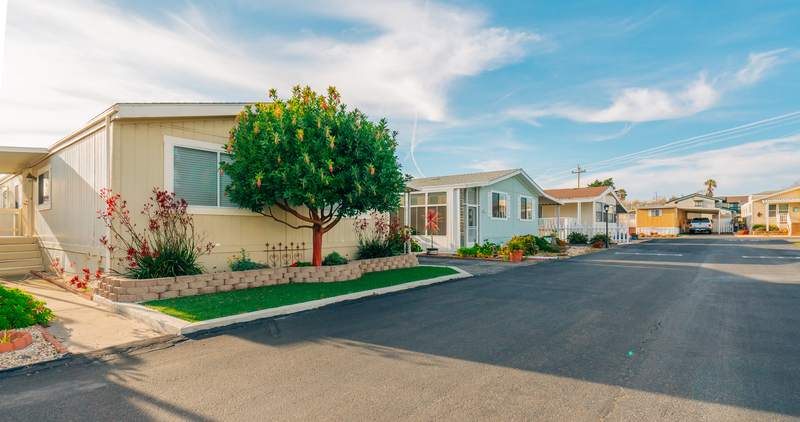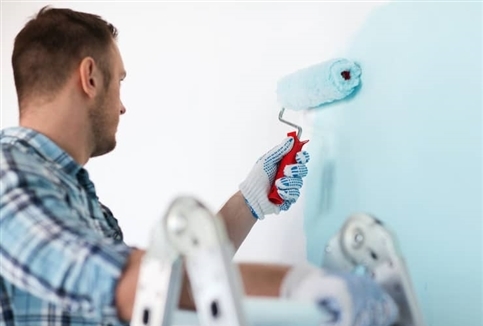Effective Nov. 16, 2025, both Fannie Mae and Freddie Mac no longer require a specific minimum credit score for conventional loan approval. Instead, loan decisions will be based on an analysis of overall credit risk factors.
Building equity in a property is one of the many benefits of homeownership. If you want to access that equity without selling the property, a cash-out refinance offers a solution.
Read on to learn what a cash-out refinance is, how it works and how to decide if it’s the right fit for your situation.
What Is A Cash-Out Refinance?
A cash-out refinance loan is a form of mortgage refinance. But instead of simply refinancing your mortgage into a different rate and term, a cash-out refinance replaces your original mortgage with a larger mortgage. As the homeowner, you’ll receive the funds that make the difference between the new mortgage amount and what you currently owe on your mortgage.
Unlike a home equity loan or home equity line of credit (HELOC), a cash-out refinance doesn’t require a second lien on your property. At the end of a cash-out refinance, you’ll still have one mortgage payment. But you’ll also have some additional cash in your bank account as a part of the transaction.
Compare Refinance Offers From Verified Lenders:
What Are The Requirements For A Cash-Out Refinance?
If you’re interested in a cash-out refinance, you’ll need to meet specific requirements set by the lender. While every lender has slightly different rules, you should expect to meet the following specifications:
Available Equity
The amount of money you can borrow is directly tied to how much equity you have in the home. You can determine how much equity you have by subtracting your current mortgage balance from your home’s appraised value. For example, if the home is worth $500,000 and you owe $300,000, then you have $200,000 in home equity.
Most lenders set a limit on how much you can borrow with a loan-to-value ratio (LTV) cap. In most cases, you can borrow as much as 80% of the home’s current value. The catch is that you’ll need to be able to afford the higher payment.
Good Credit
When you purchased a home with a mortgage, the lender likely took a very close look at your credit score. If you’re pursuing a cash-out refinance, lenders prefer to work with borrowers who have a good credit score.
In general, lenders require a credit score of at least 620 to qualify for a cash-out refinance. Additionally, your debt-to-income ratio (DTI) usually cannot be higher than 50% to be approved for a cash-out refinance.
How Does A Cash-Out Refinance Work?
A cash-out refinance offers a solution for many homeowners looking to tap into their equity. Below is a stepwise breakdown of the cash-out refinance process.
1. Estimate How Much You Can Borrow
The first step is to determine how much you might be able to borrow by running the numbers. For example, let’s say your home is valued at $400,000 and you have a $240,000 mortgage balance. If the lender allows you to borrow up to 80% of your home equity, then you could borrow up to $320,000 and receive around $80,000 cash at closing.
It’s worth noting that the lender will likely require a home appraisal. If the home is appraised for less than you originally estimated, then you’ll be able to borrow less.
2. Choose A Lender For Preapproval
If you have a current home loan, you can choose to work with your current lender or pick a new lender for your cash-out refinance. It’s a good idea to get preapproved for a cash-out refinance by multiple lenders to find the most affordable rates for your unique situation.
Shopping around can help you find the best rates, which could save you thousands over the course of your loan.
3. Decide What Loan Terms Are Best For You
The loan you choose can have a big impact on your financial future. Start by looking at your existing loan terms, including the interest rate and length of the loan.
Compare your preapproval offers to your current loan terms. If possible, look for an option that won’t stretch out your mortgage repayment timeline much longer or cost you more in interest payments. In the best-case situation, you’d find a lower interest rate for your cash-out refinance. But since that’s not always possible, reading the fine print on your options can help you decide which loan best suits your financial goals.
4. Submit An Application
When you’ve landed on a lender to work with, it’s time to submit an application. Be prepared to provide basic information about yourself in the initial application, like your address, contact information and Social Security number.
5. Go Through The Underwriting Process
The underwriting process for a cash-out refinance may feel similar to when you initially closed on your home. Most lenders will expect you to provide extensive documentation about your financial situation. For example, you will likely need to provide tax returns, bank statements and information about your current mortgage loan.
At some point, the lender will be required to provide a Loan Disclosure. This document clearly outlines the terms of the loan. Also, the lender may require a home appraisal before closing on the new loan.
6. Close And Make Your Payments
If the underwriting process goes smoothly, you’ll find yourself at closing. When you officially sign the closing paperwork, you’ll receive a lump-sum payment. While part of those funds will be used to pay off your original mortgage and cover your closing costs for the refinance, the remainder will be available for you to use as you see fit.
After closing, you’ll be expected to start making a monthly mortgage payment to repay this new loan.
See What You Qualify For
Buy A Home
Discover mortgage options that fit your unique financial needs.

Refinance
Refinance your mortgage to have more money for what matters.
Tap Into Equity
Use your home’s equity and unlock cash to achieve your goals.
When Does It Make Sense To Use A Cash-Out Refinance?
A cash-out refinance can be a useful tool for homeowners. Below are some of the most popular reasons to use a cash-out refinance.
Funding Home Improvements And Renovations
You have the option to use the funds for home improvements and renovations. In some cases, the renovations will increase the value of your home, which means you’ll earn the equity back quickly.
Consolidating Higher Interest Debt
If you have a lot of high-interest debt, consolidating with a cash-out refinance can simplify your finances. When you consolidate debt, you’ll slim down your debt obligations to a single monthly payment, which can be easier to keep track of.
Additionally, consolidating high-interest debt can help you lock in a lower interest rate on your balances. For example, if you have a credit card balance or personal loan, you’ll likely find more affordable interest rates through a cash-out refinance. Making the switch could save you thousands in interest charges.
Buying An Investment Property
If you’re interested in buying an investment property, a cash-out refinance can help you come up with the funds to make a down payment on an investment property.
Creating An Emergency Fund
An emergency fund allows you to cover the unexpected costs that life throws your way. Without an emergency fund, a single unexpected expense can throw a big wrench in your budget. If you have a large amount of equity in your home, you could use a cash-out refinance to help with your emergency in a single transaction. Just remember that a cash-out refinance process can take time. If you need money right away, it may not be the best option.
Before pursuing a cash-out refinance to create an emergency fund, take a look at current interest rates on high-yield savings accounts. If possible, you’ll want to tuck the funds into an account that offers a high enough APY to offset most of your interest costs. Otherwise, it might be more efficient to start building your savings month by month without the influx a cash-out refinance could provide.
Paying Education Expenses
Higher education can get expensive quickly. If you don’t have the funds to cover the costs, a cash-out refinance could provide the money you need.
While a cash-out refinance is one way to pay for college, it’s not the only option. Don’t forget to consider federal and private student loans as another way to pay for college.
Making Non-Real Estate Investments
Non-real estate investments, like stocks and bonds, are well-known ways to build wealth over the long term. While non-real estate investments tend to come with higher risks, building an investment portfolio is a financial goal for many.
It’s possible to pursue a cash-out refinance to build a non-real estate investment portfolio. However, it’s important to consider the higher levels of risk before making this move. For many, it’s a better idea to build your investment portfolio with monthly contributions instead of taking on a larger mortgage to get started.
If you aren’t sure how to start building an investment portfolio, consider speaking to a financial advisor.
What Types Of Cash-Out Refinance Loans Are Available?
If you want to pursue a cash-out refinance, it’s helpful to understand your different loan options. We look at a few below.
Conventional Cash-Out Refinance
Conventional cash-out refinance loans are traditional cash-out loans through lenders. In general, these types of loans have the strictest cash-out refinance requirements but offer the best rates and terms. You can use this option for loan amounts up to $766,550.
Jumbo Loan Cash-Out Refinance
If you want to borrow more than the conforming loan limits of $766,550, you will need a jumbo cash-out refinance loan. While this loan allows much higher loan amounts, it has stricter requirements because lenders underwrite and fund these loans without any backing from government entities.
FHA Loan Cash-Out Refinance
Like traditional FHA loans, FHA cash-out refinance loans come with somewhat relaxed underwriting requirements. In general, you’ll be able to borrow up to 80% of the home’s value. And in most cases, you’ll need a DTI of 45% or lower and an on-time payment history for the last 12 months on your current mortgage. You must also wait until you’ve been in the home for at least 12 months to qualify.
VA Loan Cash-Out Refinance
If you qualified to take out a VA loan, you might qualify for a Department of Veterans Affairs (VA) cash-out refinance. The major difference of a VA cash-out refinance is that you can borrow up to 100% of your home’s equity. However, the amount you can borrow varies from lender to lender.
Refinance Calculator
Get loan options at today’s interest rates that show what your new monthly payment could be. Just answer a few simple questions.
What Are The Pros And Cons Of A Cash-Out Refinance?
Every financial decision has advantages and disadvantages. Here’s what to keep in mind about a cash-out refinance.
Pros Of A Cash-Out Refinance
Below is a look at some of the advantages of a cash-out refinance.
- Fewer payments: When you consolidate debt with a cash-out refinance, you can reduce the number of bills you have to keep up with each month.
- Lower interest rates: If you’re consolidating debt through a cash-out refinance, you’ll likely face lower interest rates. For example, consolidating multiple credit card balances with a cash-out refinance will likely lower the total amount of interest you’ll face.
- Longer loan terms: Cash-out refinances come with longer loan terms. Stretching out debt repayment means you could face lower monthly payments.
Cons Of A Cash-Out Refinance
Of course, there are also some disadvantages to keep in mind.
- Risk of losing your home: Borrowing money from your home puts a lien on the property. If you miss too many payments, you risk losing your home.
- Closing costs: A cash-out refinance is like a new mortgage, which means you’ll have to pay closing costs again. In general, you should expect to pay between 2% and 6% of the loan amount in closing costs.
- Potential higher monthly payments: If you take out a larger loan amount, it could lead to higher monthly payments.
Cash-Out Refinance FAQs
Before choosing a cash-out refinance, consider the following frequently asked questions.
How is a cash-out refinance different from a home equity loan?
Unlike a cash-out refinance, home equity loans and home equity lines of credit (HELOC) are secondary loans. With either a home equity loan or a HELOC, you’ll add a new payment to your monthly obligations, on top of your existing mortgage payment. In contrast, a cash-out refinance involves replacing your first mortgage with an entirely new mortgage.
How long does it take to get money from a cash-out refinance
The average cash-out refinance takes 35 – 45 days. If you need cash more quickly, a shorter-term loan, like a personal loan, might give you fast access to the funds you need. After solving the immediate cash crunch, you always have the option of repaying the personal loan with funds from a cash-out refinance.
Will a cash-out refinance affect my credit score?
Like all loans, a cash-out refinance can impact your credit score. When you initially take out this loan, you might see a temporary drop in your credit score when the lender reviews your credit. But if you make on-time monthly payments, the initial negative impact should be outweighed by your positive payment history.
The Bottom Line
A cash-out refinance might be the financial tool you’ve been looking for. If you’ve decided to tap into your home equity through a cash-out refinance, start the process for a mortgage refinance.
View Your Refinancing Options
See recommended refinance options and customize them to fit your budget.

Sarah Sharkey
Sarah Sharkey is a personal finance writer who enjoys diving into the details to help readers make savvy financial decisions. She’s covered mortgages, money management, insurance, budgeting and more. She lives in Florida with her husband and dog. When she's not writing, she's outside exploring the coast. You can connect with her on LinkedIn.












